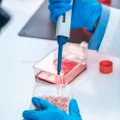So you want to be a microbiologist? you want admission into Microbiology Technology at a Nigerian University. You need to know the admission requirements for Microbiology Technology in Nigerian universities.
The world of microorganisms is teeming with life, invisible to the naked eye but playing a vital role in our health, environment, and food production. If you’re fascinated by these tiny life forms and dream of a career in Microbiology Technology
About Microbiology Technology
Microbiology Technology goes beyond the theoretical study of microbes. It focuses on the practical application of microbiological knowledge in laboratory settings. As a Microbiology Technologist, you’ll be responsible for tasks like:
- Culturing and identifying microorganisms
- Performing microbiological tests
- Analysing samples for the presence of pathogens or spoilage organisms
- Monitoring and ensuring quality control in food and pharmaceutical production
- Contributing to research in various fields related to microbiology
This dynamic field demands a blend of scientific knowledge, technical skills, and meticulous attention to detail.
Admission Requirements for Microbiology Technology
To be admitted in a Nigerian university, you must be
- Be at least 16 years of age at the time of admission.
- have at least five (5) credits in your O’Level results, which can be from WAEC, NECO, or NABTEB. These credits must include English Language and Mathematics.
- Your O’level must not exceed two sittings.
- Be at least 16 years of age at the time of admission.
- Score higher than JAMB cutoff mark .
JAMB Subject Combination for Microbiology Technology.
The JAMB subject combination for Microbiology Technology.
- English
- Biology
- Chemistry
- Physics or Mathematics
For more information on JAMB syllabus click here.
O’Level Admission Requirements for Microbiology Technology
You must satisfy the minimum O’Level university admission retirements.
You can use WAEC, NECO, NABTECH or GCE.
You are required to obtain credit level passes in
- English language,
- Biology,
- Chemistry,
- Physics and
- Mathematics
Direct Entry Admission Requirements
if you already possess a relevant qualification, you might be eligible for Direct Entry into second year. Here’s what some universities typically require:
- You must register for JAMB direct entry.
- To be eligible for direct entry into Microbiology Technology in a university, you must have a minimum of five (5) credits in your O’Level results, which can be from WAEC, NECO or NABTEB. These credits must include English Language and Mathematics.
- Your O’level must not exceed two (2) sittings.
- ND in Microbiology or a related field: A National Diploma (ND) in Microbiology or a closely aligned field, like Applied Biology, can significantly improve your chances for Direct Entry. It demonstrates your prior knowledge and experience in laboratory practices.
- HND in Applied Biology (for some universities): A Higher National Diploma (HND) in Applied Biology might be considered for Direct Entry by some universities. This advanced diploma signifies a deeper understanding of the subject.
- ‘A’ Levels (less common): While less prevalent, some universities might accept ‘A’ Levels with passes in Chemistry and Biology (or a related science subject) for Direct Entry.
Remember, some universities might have additional or slightly different admission requirements. It’s recommended to consult the websites or admissions offices of universities you’re interested in for the most up-to-date information
Study Duration
The duration for the study of Microbiology Technology through UTME in Nigerian university is 5 years.
The duration for the study of Microbiology Technology through direct entry in Nigerian university is 4 years.
But note that this might differ from university to university.
School Fees
The school fees for Microbiology Technology varies based on the university. To get school fees, check your chosen university.
Departmental cutoff mark
The departmental cutoff mark is between 160+.
Alternatives to Microbiology Technology
These courses possess the same admission requirements with Microbiology Technology.
- Microbiology
- Science Laboratory technology.
- Biotechnology
- Biochemistry
- Plant science and Biotechnology
- Genetics and Biotechnology
- Zoology and Environmental Biology
- All other Biological science courses
- All other technology courses.
Career Opportunities
Microbiology Technology graduates have various career opportunities in different fields, including:
- Lecturing and research in universities, polytechnics, and biomedical research centres.
- Government agencies, such as centres for disease control, Food and Drug Administration agencies, water corporations, waste management agencies, environmental control and protection agencies, and environmental impact assessment agencies.
- Industrial establishments, such as food/pharmaceutical industries.
- Medical, public health, agricultural, and veterinary laboratories.
- Fermentation industries, such as breweries, alcohol distilleries, soft drink, and fruit juice production industries.
There are lots more opportunities in the field of Microbiology technology.
Here is a list of universities that study Microbiology in Nigeria, click here.
Conclusion
Gaining admission to a Microbiology Technology program requires dedication and preparation.
By understanding the requirements and preparing for them, you’ll be on your way to a rewarding career in the fascinating world of microorganisms.
Fore more information on other courses and university, click here.
Share your questions and comments in the comments section.






